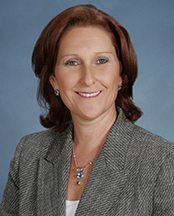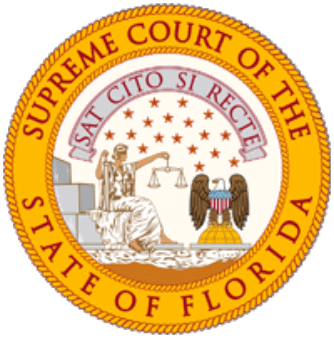 When Dade Legal Aid/Put Something Back first asked for attorneys to take unaccompanied minor cases, I wasn’t sure I was the right lawyer for the job. Despite my history of public interest work, including early roots as a Federal Public Defender and a consistent pro bono practice over my thirty plus year career, I currently practice commercial litigation and serve as a certified circuit civil mediator, but had never before worked in immigration law. However, as a mother of three, I have always focused my pro bono practice on helping underprivileged children, including service as an attorney guardian ad litem and an advocate for teens seeking assistance from the juvenile court. Also, a lifetime of living in multi-cultural Miami and my own family background gave me insight into the importance of helping immigrants get a chance in this country. So, after attending a couple of training sessions, I took a deep breath and agreed to take a case. I am so glad I did. It turned out to be one of the most energizing and rewarding experiences of my legal career.
When Dade Legal Aid/Put Something Back first asked for attorneys to take unaccompanied minor cases, I wasn’t sure I was the right lawyer for the job. Despite my history of public interest work, including early roots as a Federal Public Defender and a consistent pro bono practice over my thirty plus year career, I currently practice commercial litigation and serve as a certified circuit civil mediator, but had never before worked in immigration law. However, as a mother of three, I have always focused my pro bono practice on helping underprivileged children, including service as an attorney guardian ad litem and an advocate for teens seeking assistance from the juvenile court. Also, a lifetime of living in multi-cultural Miami and my own family background gave me insight into the importance of helping immigrants get a chance in this country. So, after attending a couple of training sessions, I took a deep breath and agreed to take a case. I am so glad I did. It turned out to be one of the most energizing and rewarding experiences of my legal career.
My client is a teenage boy from Guatemala who had overcome a difficult childhood. He never knew his father and his mother had died several years ago after extended illness. He was living in extreme poverty with his younger brothers and maternal grandparents in a home without running water, a toilet, or even a stove, and was surviving mostly by the generosity of others in their community. When his family could no longer afford to care for him, he started the all too familiar journey north. Just as my client crossed the Rio Grande into Texas, he was immediately picked up by the U.S. Border Patrol. Since his only relative in the country is his uncle living in Homestead, he ended up in Removal proceedings in Miami awaiting seemingly inevitable deportation.
My mission was to secure resident alien status for him, a process that involved navigating both the Federal and State court systems and the administrative immigration bureaucracy. This proved to be particularly challenging, both because of the complexity of the task and the language barrier. Despite my proficiency in Spanish, my client was simply unable to understand the process because of its nuances and his spoken dialect. Moreover, all of the documents had to be translated into English by a certified translator. To my surprise, and with my gratitude, Tony Palomo of a Gift of Tongues, Inc., waived all of the fees related to the translations required by the Court.
The first task was to obtain an extension of the Removal proceedings in the Federal Immigration Court so that we could petition the juvenile court for an Order of Dependency—and to have the Juvenile Court determine that it was in the child’s best interest to remain the U.S. After accomplishing this, we went back to the Immigration Court to terminate the Removal proceedings. Then, we applied for Special Juvenile Immigration Status administratively, with the United States Citizenship and Immigration Services (“USCIS”). My client busily obtained the requisite items for the application, underwent fingerprinting and eventually was set for an interview. Throughout the process, I was lucky to have the invaluable support of a very gracious Miami immigration attorney, Alanna McCoy, who served as my mentor. I would be remiss if I did not also mention the help I received from my assistant, Barbie Llanos, who fielded calls, translated documents, and assisted me throughout the proceedings. With the help from Alanna and Barbie, and after many months of work and worrying, my client was granted resident alien status, which changed his life forever.
At the same time as these legal proceedings, a human story was unfolding in front of me. When I first met my client, he was shy, serious, and frail. It was easy to see that he was malnourished and fatigued. But with each visit, he came back stronger and stronger, until by the end, he had put on some weight, grown a bit, and appeared healthy and smiling. He attended night school to learn English and throughout the process we encouraged him to study, learn and speak his new language. It was amazing and humbling to see his future completely changed for the better by what we had accomplished. Indeed, we had participated in the American dream upon which this country was built as a place where anyone—regardless of wealth, race, or language—can come and have a chance to thrive.
Tracye Solove and her husband, Robert Solove, are commercial litigators in the Solove Law Firm, P.A., an AV rated boutique Florida law firm specializing in creditor’s rights. Additionally, Tracye has served as a Supreme Court Certified Circuit Civil Mediator since 2004 handling Real Estate, Construction, Landlord Tenant and other contract disputes. Tracye obtained her B.A. Degree in Sociology from the University of Florida, Summa Cum Laude in 1979 and graduated Cum Laude from the Frederic G. Levin College of Law at the University of Florida in 1982. In addition to her commercial and mediation practice and her pro bono work, she served for six years on The Client Security Fund for the Florida Bar as an investigating member, and currently sits on a grievance committee of the Florida Bar. She encourages lawyers statewide to get involved in pro bono cases and urges them not to be intimidated to take cases out of their practice area.




